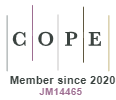Contemporary challenges and new frontiers of law and society
DOI:
https://doi.org/10.5585/13.2024.27928Keywords:
editorial, direito, Thesis JurisAbstract
It is with great pleasure that we present another edition of the Revista Thesis Juris, reaffirming its commitment to serving as a space for critical and interdisciplinary reflection on the most pressing topics in Law and Social Sciences. In this volume 13, issue 2, we bring together eight articles that address fundamental contemporary issues, exploring, with theoretical depth and analytical rigor, the legal and social implications of technological transformations, new conceptions of citizenship, and the advancement of equity and inclusion agendas.
The first article, by Clarindo Epaminondas de Sá Neto and Maéve Rocha Diehl, opens this edition with a thought-provoking analysis of the challenges to democracy in a technological society. The authors examine the impact of digital innovations on data protection, the use of artificial intelligence, and electoral legislation, highlighting how such advancements can both strengthen and undermine popular sovereignty. This is a timely warning about the risks inherent in the manipulation of information in digital environments, while proposing ways to preserve the integrity of democratic processes.
Following the theme of fundamental rights protection, André Rubião and Fernanda Toffanetto expand the horizon of legal discussions by addressing the protection of non-human animals within the scope of Family Law. Drawing inspiration from Portuguese legislation, the authors question the normative limitations of the Brazilian legal system and suggest legislative innovations to ensure the protection of these beings. The article challenges traditional paradigms and proposes a specific legal statute, expanding the scope of protection under the Law beyond the human species.
Still in the field of improving access to justice, Eloy Pereira Lemos Junior and Luana de Castro Lacerda investigate the applicability of procedural legal transactions in collective protection. In light of the structural limitations of the judiciary system, the authors propose alternative mechanisms that could ensure greater efficiency and effectiveness in resolving collective disputes. This contribution resonates as a practical and innovative response to address procedural delays and reduce the costs of access to justice.
Advancing the debate on technology and ethics, Robson Almeida Borges de Freitas and Matheus Pacheco Coutinho analyze the responsible use of user data by the Meta company, highlighting the impacts of forming ideological bubbles. The study demonstrates how algorithmic personalization can compromise informational diversity and individual freedom, proposing a balance between technological innovation and transparency in data collection and usage. This reflection fits within the current global debates on digital platform regulation and privacy protection.
Social inequalities also take center stage in this edition. Bruno Mello Corrêa de Barros and Daniela Richter examine the role of fraternal law in the formulation of public policies for digital inclusion, emphasizing how equitable access to technology can reduce social barriers and expand opportunities for civic participation. The article directly addresses the challenges of promoting equality and inclusion in a digitized world, proposing solutions to democratize access to technological tools.
The theme of inclusion and fundamental rights reappears in the contribution by Douglas Aparecido Bueno and Carolina de Albuquerque, who address the right to mental health and suicide prevention. The article advocates for the creation of legal psychology clinics in universities as spaces for support and the promotion of social well-being. Amid growing concerns about mental health, the authors emphasize the need for interdisciplinary public policies that treat the issue as a priority and essential human right.
Finally, concluding this edition with a reflection on gender equity, Tatiana Campos and Marcelo Benacchio investigate women’s participation in the construction of contemporary lex mercatoria. The authors discuss how the inclusion of women in leadership positions in transnational companies can promote greater economic and social balance. Aligning with the UN's 2030 Agenda, the study reaffirms the importance of policies that encourage gender equality as a pillar for sustainable development.
A look to the future
More than a collection of academic analyses, this edition of Revista Thesis Juris consolidates itself as a space for the formulation of new perspectives on contemporary legal and social dilemmas. The articles gathered here engage with the emerging demands of society, proposing concrete and innovative solutions that challenge paradigms and inspire the construction of a more just, ethical, and inclusive future.
We invite our readers to reflect on the issues raised and engage in advancing these discussions, contributing to strengthening Law as a tool for social transformation. May this volume serve as inspiration for new research projects, collaborative dialogues, and actions that promote justice and equality in all its forms.
Happy reading.
Downloads
References
.
Downloads
Published
How to Cite
Issue
Section
License
Copyright (c) 2024 Alexandre Reis Siqueira Freire, Thiago Gontijo Vieira

This work is licensed under a Creative Commons Attribution-NonCommercial-ShareAlike 4.0 International License.
- Abstract 263
- pdf (Português (Brasil)) 93






